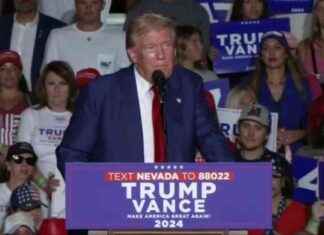Against all odds, the last week has ended without it being possible to close the agreement between the trade union organizations representing the self-employed and Social Security.
Early yesterday, the general secretary of CC.OO, Unai Sordo, assured in statements to the media that the union was in a position to “immediately close” an agreement on the contributions of the self-employed regime to Social Security. The feeling was shared across the negotiating table.
But she was quickly cooled down by Lorenzo Amor, the president of the Association of Self-Employed Workers (ATA). “If on Monday I said that there was close to a principle of agreement although it was caught with threads, today (yesterday) I say that that agreement is caught between pins. We are on Friday and we do not have the text that the Government wants to take to the Council of Ministers on Tuesday, ”he assured.
ATA, CEOE and Cepyme have convened their respective executive committees next Monday to submit the Government’s proposal for consideration, but “without a text there is no agreement,” insisted Amor. It is the same position that Uatae defends.
The truth, according to various sources of the negotiation consulted by this newspaper, “the agreement still lacks a lot of precision.” Last Tuesday, the team of the Minister of Migration and Social Security, José Luis Escrivá, presented a proposal in which the sections in which the self-employed will be able to contribute over the next three years were extended to 15. The new proposal lowered the quotas for the self-employed with incomes of less than 1,300 euros, up to 767 euros in 2025 for those who report incomes of less than 670 euros, and extended sections on the higher side of the income table.
The proposal convinced all the parties and the positions to close the agreement came closer.
Since then, the Gordian knot of the negotiations has been in the definition of what will happen after 2025. How will the quotation system evolve after that year? On the one hand, organizations such as Uatae and UPTA demand a greater reduction in fees for workers with lower incomes. But above all, it remains to be defined how the income contribution base will be calculated in the future (before nine years, according to the commitment made by the negotiators), on which the fees to be paid by the self-employed will be applied. Organizations such as ATA insist that only the self-employed’s income that is directly related to the activity be included.
The objective of this reform is that when it is completed, the self-employed pay Social Security a fee directly proportional to their real income, just as employed workers usually do. The problem is that from the Ministry of Finance they need to define the information channels that ensure the ability to define the exact amount of that income and thus be able to calculate the fee as accurately as possible. The current wording of this point proposed by the ministry only seems to convince CC.OO.
Other issues pending profiling, although in principle less tricky, are those related to the social protection of self-employed workers and their progressive equalization to those enjoyed by employed workers, such as subsidies for cessation of activity, among others.








